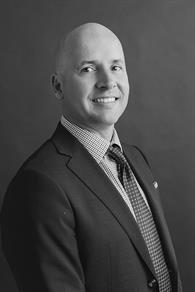
Strokes, which are sometimes called “brain attacks,” happen when an artery leading to the brain becomes blocked or suddenly breaks (ruptures). When a person has a stroke, blood flow becomes cut off from his or her brain, causing the cells of the brain to be deprived of oxygen and glucose. If the blood flow stops for more than 3-4 minutes, the brain cells can die, causing permanent damage to the brain.
Approximately 800,000 people have a stroke each year, which equates to about one every four seconds. Strokes are the fourth leading cause of death in the United States, with one person dying every four minutes as a result of a stroke.
Strokes can occur quickly and without much warning. The main symptoms of stroke include:
-Confusion, dizziness, or altered consciousness;
-Trouble speaking and understanding;
-Headache;
-Vomiting;
-Trouble seeing out of one or both eyes;
-Trouble walking; and
-Lack of coordination.
Several risk factors have been shown to be related to the occurrence of strokes. While some risk factors cannot be controlled, there are many controllable risk factors, including:
–High blood pressure (hypertension)- high blood pressure (140/90 or greater) can cause blood to put too much pressure on the walls of arteries in the body. This additional pressure can weaken the arteries and cause them to burst.
–Atherosclerosis- if fatty plaques build up in artery walls, the walls can become narrowed or blocked, cutting off blood flow to the brain.
–High cholesterol– high cholesterol contributes to plaque buildup, which can block blood flow to the brain.
–Heart disease– heart disease increases risk of stroke compared to those with normal hearts.
–Diabetes- diabetes increases risk of stroke because of the health problems associated with the disease.
–Smoking or tobacco use– smoking lowers oxygen levels in the blood and makes the heart work harder, which can create a situation where blood clots can form more easily.
–Certain drugs– anticoagulants (such as Warfarin or Coumadin) or birth control pills and patches can increase stroke risk.
–Atrial fibrillation (A-fib)– in A-fib, the heart’s upper two chambers beat too rapidly, which allows blood to pool in the heart. The pooled blood can form clots that can cause a stroke.
Abnormal Heart Rhythm In Surgery Risk Factor For Stroke
Every year, thousands of Americans develop abnormal heart rhythms (atrial fibrillation or A-fib) after having major surgery. In the past, physicians and surgeons have considered these episodes to be a short-term problem. However a recent study published in the Journal of the American Medical Association (JAMA) shows that doctors should be more concerned about these episodes of A-fib because they make a person five time more likely to have a stroke.
The JAMA study, which followed 1.7 million people who had inpatient surgery in California hospitals during a three-year period, found that patients who developed A-fib during a hospital stay following surgery had a 30 percent increase in their risk for having a future stroke within the next year.
Based on the results of the JAMA study, doctors are being encouraged to communicate better with their patients regarding their increased risk of stroke following an incident of post-surgical A-fib. Physicians and surgeons are also being encouraged to fully document an A-fib condition if it is found in patients, as well as create monitoring and treatment plans that reduce the risk of stroke.
Medical Malpractice Help For Stroke Victims
The Tallahassee medical malpractice attorneys at Fasig & Brooks handle a wide variety of cases including professional negligence, misdiagnosis or delayed diagnosis, surgical mistakes, and improper medication. If you or your family member has suffered a stroke following surgery, contact our experienced Tallahassee stroke lawyers at (850) 222-3232 or use our online contact form.






